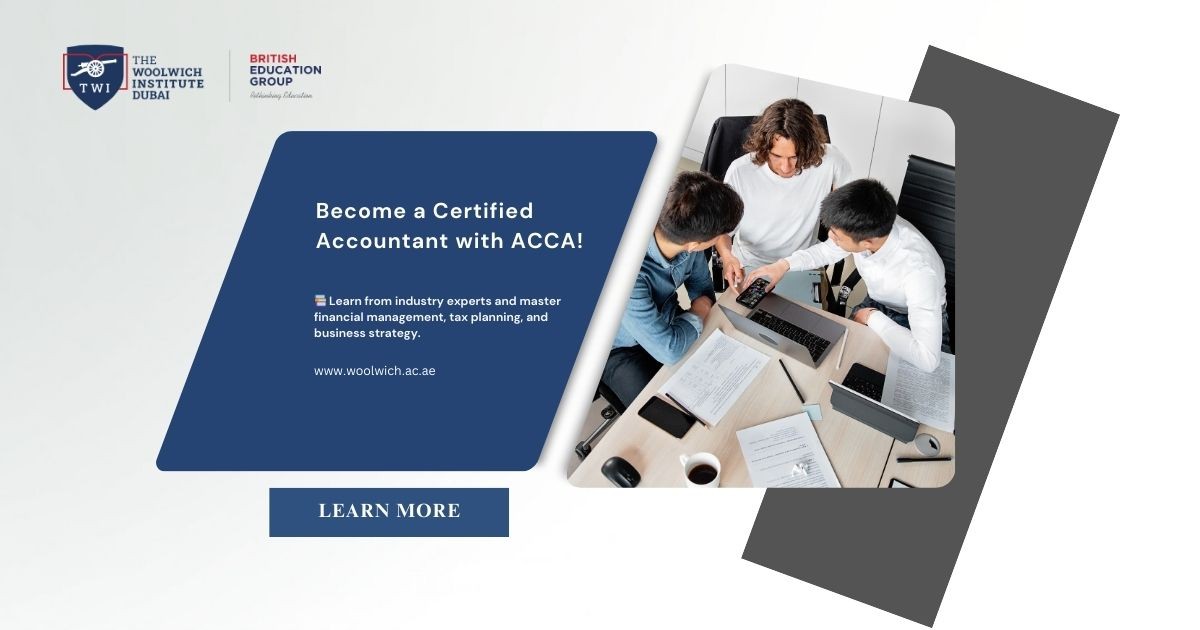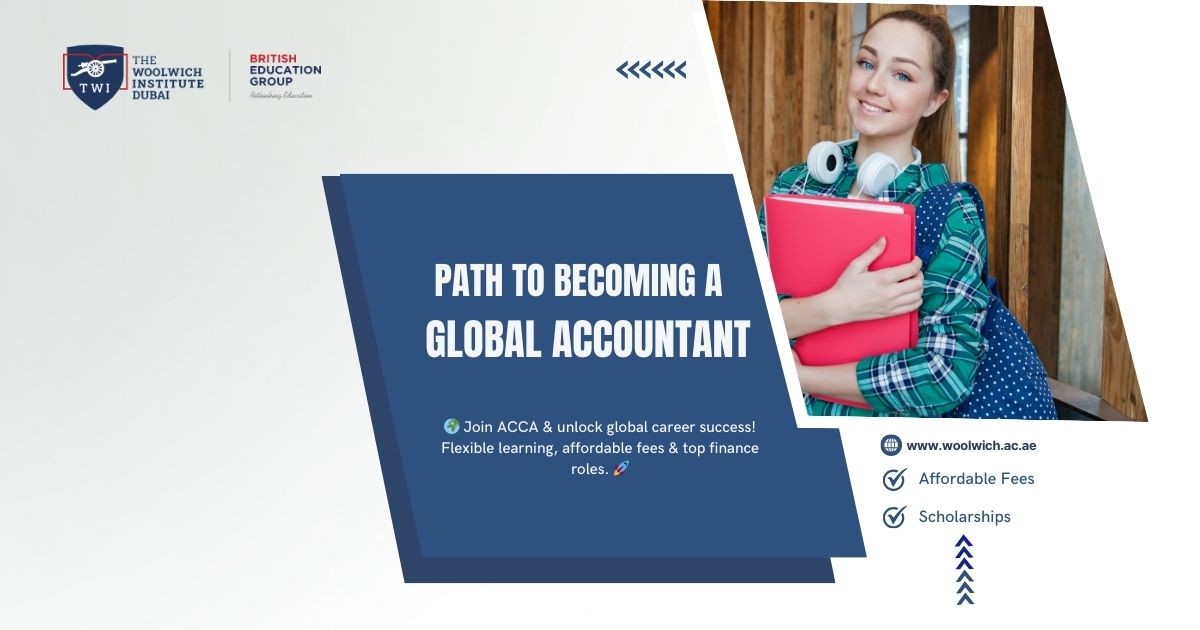
Why Choose the ACCA Accounting Course?
The ACCA accounting course develops global career opportunities so people looking to succeed in jobs in accounting and finance should consider it. The globally recognised ACCA qualification standard qualifies students for positions in the fields of auditing taxation consulting and financial management. Participating in the ACCA program delivers technical capabilities together with unified strategic competence and marketplace readiness.
Learning about ACCA's requirements for enrollment into its certification programs
Prospective learners need to understand all ACCA course requirements before submitting their enrollment application. ACCA follows an inclusive admission policy yet it needs certain educational requirements and special rules about exemptions.
Who Can Apply for the ACCA Accounting Course?
Students must fulfil particular qualifying conditions before joining the ACCA Accounting Course. The key to ACCA course eligibility criteria is listed below:
- As an entry requirement candidates need two A-level qualifications together with three GCSEs in five subjects that include both English and Mathematics.
- The ACCA provides exemptions from specific exams to graduates holding degrees in accounting or finance or related business programs.
- The Foundations in Accountancy (FIA) route allows applicants without academic credentials to join the program.
- Present employment in financial industries allows you to fulfil admission specifications through job experience.

Exemptions Based on Prior Qualifications
- Business degree or accounting degree holders often obtain automatic exceptions toward specific ACCA coursework.
- Members with qualifications like CA or CPA together with other professional accreditations can take advantage of exam exemptions.
Work Experience Requirements
- Fully qualified ACCA membership requires three years of work experience within roles related to accounting or finance after meeting all other requirements.
ACCA Course Fees: Best and Effective Investment for the ACCA Programme
The ACCA accounting course expense stands as a primary concern for many students because of its affordability in comparison with other global qualifications. At a global scale, ACCA exhibits lower costs than competing qualification programs.
Breakdown of ACCA Course Fees
- Initial Registration Fee: A one-time payment for new students.
- Annual Subscription Fee: Students must pay fees each year as part of maintaining their academic status.
Examination Fees: The costs of ACCA exams vary across papers while early standard and late entry patterns create different fee scales.
Study Material & Coaching Fees: Costs for textbooks, online courses, and tuition providers.
Is ACCA Worth the Investment?
- High salary potential after qualification
- Increased job opportunities globally
- Recognition by top employers in the finance industry

How the ACCA Course is Structured
The ACCA Course follows three structured levels that build your expertise step by step.
Applied Knowledge Level (Entry-Level)
Covers fundamental concepts of business and finance, including:
- Business & Technology (BT)
- Financial Accounting (FA)
- Management Accounting (MA)
Applied Skills Level (Intermediate-Level)
Enhances your ability to apply knowledge in practical business scenarios:
- Corporate & Business Law (LW)
- Performance Management (PM)
- Taxation (TX)
- Financial Reporting (FR)
- Audit & Assurance (AA)
- Financial Management (FM)
Strategic Professional Level (Advanced-Level)
Prepares you for leadership roles in finance and accounting:
- Strategic Business Leader (SBL)
- Strategic Business Reporting (SBR)
- Two optional papers from Taxation, Advanced Audit, and others
Career Benefits of the ACCA Accounting Course
The ACCA qualification provides more than credentials because it builds a career path that will endure in the future.
High-Demand Job Roles
- Financial Analyst: The analyst examines market movements while supplying financial analytical perspectives.
- Tax Consultant: The course enables tax consulting expertise for both business enterprises and private individuals.
- Auditor: Organizational financial reports need to fulfil all necessary legal requirements.
- Management Accountant: Assist in strategic financial decision-making.
Salary Expectations for ACCA Graduates
- Entry-level roles: $30,000 - $50,000 per year
- Mid-level roles: $60,000 - $90,000 per year
- Senior positions: $100,000+ per year

How to Get Started with the ACCA Accounting Course
ACCAs' enrollment procedure is simple yet determining the correct learning pathway becomes crucial for success.
Steps to Enroll in ACCA
- Register with ACCA Global.
- The registration process requires payment of fees followed by annual subscription costs.
- Students must choose between partnering with an external learning provider or studying the content independently.
- Schedule and take exams.
Study Modes: Online vs. Classroom Learning
- Online Learning: The program enables fit and self-directed progress for professionals who work full-time.
- Classroom Learning: Students learn under direct tutor supervision within a highly organized learning environment.
- Commercial Aspects: ACCA represents an intelligent career pathway for several reasons
You now recognize how the ACCA accounting course works as well as its fee structure and benefits offerings. Why does ACCA represent your best career decision?
Global Recognition & Industry Demand
- ACCA operates as a recognized professional qualification across 180 different countries worldwide.
- Employers actively seek ACCA-certified professionals.
Return on Investment
The program price point for ACCA education costs less than comparable professional qualifications.
The opportunity to earn potential profits after qualification makes this sector a highly profitable professional pathway.
Flexible Career Path
- The workforce available for this qualification extends to every sector including finance, banking, IT and healthcare thereby making it the best choice for your career.
- The ACCA certification enables professionals to select between a wide range of specific specializations within accounting and finance.
ACCA vs. Other Accounting Qualifications
ACCA vs CPA
What is ACCA?
The ACCA qualification presents itself as a global certification which supports the professional development of future accountants as well as finance experts. The qualification provides complete certification through its coverage of financial management and taxation and audit and financial reporting areas.
What is CPA?
Certified Public Accountant (CPA) holds its main recognition power within the United States. The program emphasizes auditing with taxation and regulatory frameworks which makes it appropriate for those who seek employment in U.S. financial industries.
Key Differences
- ACCA achieves international recognition across 180 different countries but CPA maintains the strongest presence in the American territory.
- ACCA accepts high school diploma holders as candidates but CPA seekers need to complete university studies.
- ACCA consists of 13 examinations whereas CPA is composed of four tests.
- ACCA members have access to worldwide finance positions but CPA members find their opportunities within American businesses and accounting firms.
ACCA vs CMA
What is CMA?
The Certified Management Accountant qualification exists through the Institute of Management Accountants to teach students management accounting along with strategic financial management.
Key Differences
- ACCA covers wider accounting fields than CMA which concentrates on financial administration combined with cost optimization.
- ACCA achieves international acknowledgment whereas CMA remains popular in particular U.S. and Middle Eastern markets.
- ACCA students must navigate through numerous test papers which examine various topics yet CMA tests candidates on management accounting material alone in two sections.
- The job market differentiates ACCA professionals because they work across auditing roles and financial consulting and tax advisory fields but CMA professionals advance in managerial accounting functions.
ACCA vs CIMA
What is CIMA?
Management accountants and financial strategists learn through the Chartered Institute of Management Accountants (CIMA) qualifications.
Key Differences
- ACCA professionals must pass three stages of exams known as Applied Knowledge, Applied Skills and Strategic Professional while CIMA candidates need to pass through four different levels.
- Career opportunities between ACCA professionals differ from CIMA professionals because ACCA enterprises handle external auditing and financial reporting yet CIMA enterprises concentrate on internal financial planning and strategy.
- Organizations select CIMA over ACCA because of its special recognition in business finance operations although ACCA operates globally.

Understanding ACCA Level I
What is ACCA Level I?
The Applied Knowledge level of the ACCA qualification makes up its first educational stage called ACCA Level I. It includes three key subjects:
- Business and Technology (BT)
- Management Accounting (MA)
- Financial Accounting (FA)
The necessary accounting fundamentals at this stage train students properly for upcoming ACCA courses.
ACCA and Gen Z: A New Era of Accounting Professionals
Why ACCA Appeals to Gen Z?
- The members of Gen Z who were born between 1997-2012 consider flexible arrangements along with digital advancement and global job prospects as vital features. Acadservices adds advantages to match the needs of students through its program features:
- Online Learning & Exams: Digital-friendly study resources and remote examination options.
- Within the ACCA community students gain the flexibility to work between different industries and across international borders.
- The training program provides fintech data analytics automation modules that equip Gen Z professionals with cutting-edge strength for career success.
The Rise of "Z ACCA"
The modernized accounting solutions that Gen Z uses to redefine business operations form the basis for the term "Z ACCA." Young ACCA-certified professionals obtain employment opportunities because they can unite artificial intelligence with blockchain technology to analyze financial data.
ACCA vs. CPA (Certified Public Accountant)
The Certification of Public Accountant (CPA) along with ACCA exist as a professional accounting accreditation.
| Feature | ACCA | CPA |
| Global Recognition | Recognized in 180+ countries | Primarily in the US |
| Exam Structure | Three levels (Applied Knowledge, Applied Skills, Strategic Professional) | Four exam sections |
| Flexibility | Exams offered multiple times a year | Limited exam windows |
| Career Opportunities | Multinational corporations, global finance roles | Primarily US-based roles |
ACCA vs. CA (Chartered Accountant)
| Feature | ACCA | CA |
| Exam Flexibility | More flexible | Fixed exam schedule |
| Global Scope | International recognition | Country-specific recognition |
| Industry Demand | Suitable for global finance and MNCs | More focused on local markets |
Start your Journey Through ACCA Enrollment Today.
Students alongside professionals should pick the ACCA accounting course for career advancement. The ACCA program gives new finance professionals and career transitioners all the skills together with educational expertise which generates worldwide recognition for success.
Ready to take the next step?
Woolwich College UAE offers an exploration platform for the ACCA program which opens endless possibilities in your career path.

FAQs About the ACCA Accounting Course
What are the basic ACCA course eligibility criteria?
The entry requirements for enrollment consist of A-levels or equivalent qualifications or degree holders in accounting and finance might qualify for waivers.
Students need to know about the complete fee structure associated with the ACCA course fees.
The entire program price depends on multiple factors but stays accessible worldwide as a standard certification process.
How Long Does it Take to the ACCA Course?
Students should determine their pace because it affects the length of time required for ACCA accounting coursework. A normal student should finish this course in 3 to 4 years while their past qualifications and exemptions determine the duration of their study.
Working professionals can study for ACCA without any issues.
Students can manage their working responsibilities because of the adaptable study system.
Are ACCA-qualified professionals in demand?
Yes! Professionals holding the ACCA qualification find extensive employment opportunities in companies operating on a multinational level and in banking institutions and public sectors.
Which institution provides acceptable study options for the ACCA course?
Woolwich College UAE is among numerous accredited institutions that deliver high-quality ACCA programs to students.
Can ACCA do an audit?
The permission for ACCA professionals to conduct audits lies with national regulations although the requirement to sign audit reports varies nationally. ACCA members need supplementary qualifications and local authorizations to sign audit reports in their respective jurisdictions.
Can ACCA sign audit reports?
Members of ACCA lack automatic permission to sign audit reports around the world. ACCA-qualified professionals from the UK and various EU territories need to obtain a practising certificate and pass specific licensing criteria to gain permission for audit report signature.
Can ACCA be done after the 12th?
ACCA admission becomes accessible to students right after they finish their 12th-grade studies. Students who have obtained higher secondary education can begin their journey with the ACCA Foundation in Accountancy (FIA) before continuing to the complete ACCA qualification.
How are ACCA exams conducted?
ACCA delivers its exams through computers at locations approved by the ACCA worldwide network of centres. The subject examination dates for ACCA fall into two categories on-demand assessments and quarterly tests held in March, June, September and December. The evaluation system determines the student's capability to demonstrate both practical understanding as well as fundamental capabilities and strategic areas of expertise.
How many years does ACCA take?
Accomplishing the ACCA qualification takes between two and three years based on student study speed and qualifying qualifications for exemptions.
What is the regular duration required for completing the ACCA course?
Students taking the ACCA course generally need 2 to 5 years because factors like educational background together with full-time or part-time study mode and qualification exemptions affect completion duration.
Why is ACCA better than CA?
Students who need global recognition and international career opportunities generally find the ACCA qualification to be superior to the CA (Chartered Accountant) certification. ACCA provides a flexible examination process with shorter completion times and international recognition through its acceptance within 180 nations above CA which operates as a country-specific examination for instance in India through ICAI.
Will ACCA be replaced by AI?
AI cannot bypass fundamental decision-making roles ethical competencies and judgment capabilities which exclusively belong to ACCA professionals. To adjust to emerging market requirements YGON experts must join financial knowledge with analytics of data and artificial systems integration.
When will ACCA results be released?
The ACCA evaluates its candidates after an examination session by releasing results within six weeks. The scheduled official ACCA result date controls the release timing of session-based tests even though on-demand exams show results instantly.
How will ACCA help me?
Obtaining the ACCA designation enables professionals to build outstanding careers in both audit practice and financial accounting and audit fields. Accredited professionals can leverage their qualifications to gain international career prospects while receiving appealing incomes and select their specialization between financial management and taxation and risk evaluation. Students who want to develop their professional careers should pursue this qualification since it provides access to work in multinational businesses.





